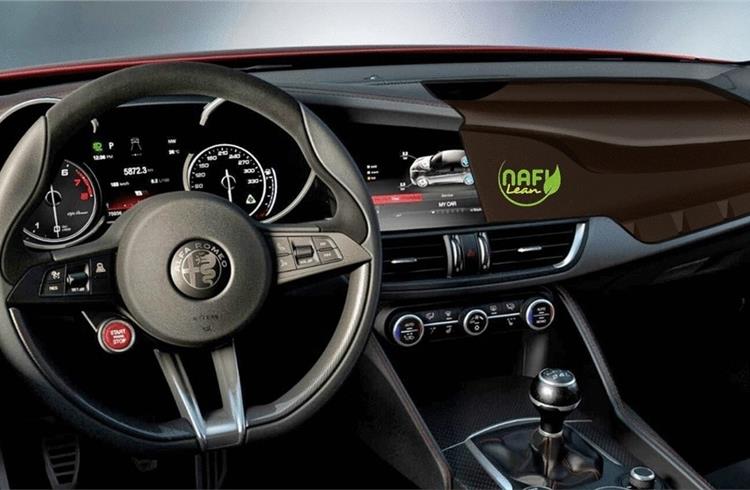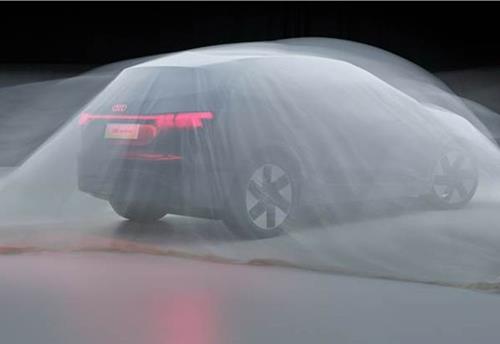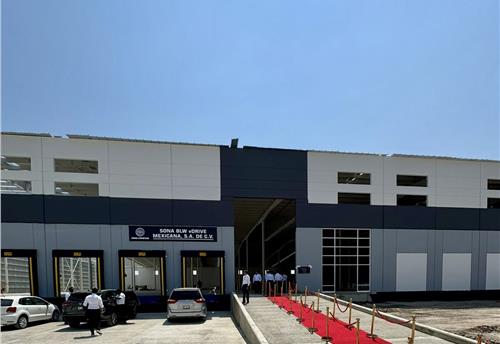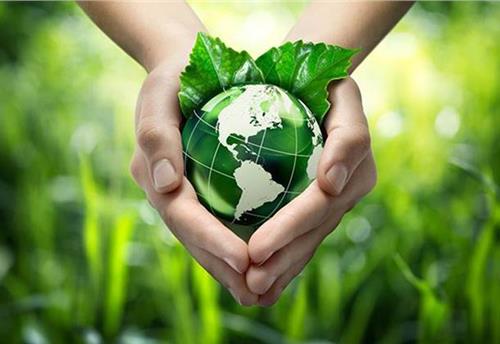Six carmakers take to Faurecia's lightweight biomaterials
Byton latest OEM to adopt NAFILean lightweight hemp-based biomaterials, which is already used in cars from PSA, FCA, Jaguar Land Rover and Renault Nissan Mitsubishi.
As Faurecia’s NAFILean lightweight hemp-based biomaterials are increasingly adopted by OEMs, the company has developed new figures showing the significant energy and environmental benefits of the innovative breakthrough. It also has a positive impact on agriculture.
Following their initial registration with Peugeot PSA, the biomaterials are now being used in the car parts of six OEMs. One of the latest is Byton’s electric SUV, confirming that the innovation is also well-positioned to play a role in the next generation of vehicles.
The recent progress is creating new demand for agricultural production of hemp, NAFILean’s primary raw material, a topic raised by Faurecia at last week’s international Salon de l’Agriculture show in Paris.
Faurecia’s work on NAFILean began 10 years ago with an effort to identify 'the ultimate material' that could be used for lightweight car components, thus delivering a positive environmental impact. The material needed to meet stringent performance characteristics and be suited for 'plug-and-play' implementation in the manufacturing process.
Hemp was selected from more than 20 agricultural candidates based on its good technical performance, renewability as a grown fiber and low water consumption. It also replenishes the soil for other subsequent crops, does not require pesticides and is not subjected to externally-influenced price variation.
The result is a recyclable lightweight composite composed of 20% natural fibres that are substituted for glass fibres in the injection moulding of structural parts for instrument panels, door panels and center consoles.
Following a two-year period to develop the material and an additional year for the initial OEM registration with PSA, the first commercial success was achieved in 2013 in door panels for the Peugeot 308. The 1.2kg of the material delivered a 25% weight reduction and a 25% environmental impact reduction, figures validated through an ISO 14040-44 Norm 'Life Cycle Assessment' covering the material’s production, use and end of life.
One difference with previous attempts to introduce biomaterials into automobiles is the added value Faurecia brings. The involvement of a Tier 1 supplier in the material’s production ensures that the innovation is relevant when integrated at the vehicle subsystem level (interior systems, front panels, door panels, central console).
OEM adoption
Following the initial commercial application, NAFILean is starting to become a new automotive standard, having been adopted by OEMs on a series of vehicles:
- PSA (Peugeot Citroën DS Opel brands): Peugeot 308 and DS7 Crossback
- FCA (Fiat Chrysler Automotive, including Alfa Romeo): Alfa Romeo Giulia
- JLR (Jaguar Land Rover): Grand Evoque and E-Pace
- RSA (Renault Group, including Nissan and Mitsubishi): Megane
Calculations made using accepted lightweight benefit figures show that the serial implementation of the lightweight biomaterials on the high-volume vehicles will produce significant environmental benefits: a reduction of 40,000 tons of CO2 emissions and the ability to drive an additional 325 million kilometres with the same quantity of fuel.
The recent award for the use of NAFILean in serial production of the electric SUV for the Californian/Chinese company FMC Byton Concept highlights the benefit for next-generation vehicles: the savings of one kilogram of weight contributes to three miles of increased battery autonomy.
A bright future
The hemp compound is openly brought to the market through APM (Automotive Performance Materials), a joint venture between Faurecia and an agricultural cooperative in France’s Burgundy region. The 50-50 JV provides Faurecia with a reliable supply and the freedom to operate on the market and further leverage and deploy its innovation capabilities.
In addition to the automotive biomaterials, other parts of the hemp plant are also the source of co-products such as building insulation and food oils, a point underlined by Faurecia at the Salon de l’Agriculture presentation. Land-use and food diversion concerns also are not an issue in the growing of hemp: it would be possible to supply all of the OEMs in Europe on only 5,000 hectares of land.
Hemp production and NAFILean appear well-positioned for future growth. The biomaterials are being reviewed by OEMs for additional vehicles and production is projected to triple in the next three years. Faurecia teams are at work on new generations of NAFILean as well as on efforts to increase the percentage of biomaterials in composites. These include bio-sourced resins together with the natural fiber reinforcements, a 100% petro-free material already available for future industrialisation.
RELATED ARTICLES
Audi Q6L e-tron, Q5 e-tron RS, SQ6 coming to Beijing motor show 2024
Long-wheelbase Audi Q6 e-tron, SQ6 based on PPE platform.
Sona Comstar opens new plant in Mexico to cater to growing EV demand in N America
The new facility, set up to meet the growing demand for high-quality driveline solutions for BEVs in North America, will...
Earth Day 2024: each day is about reducing emissions and saving Planet Earth
Earth Day is every day, and anywhere you are. And in a time of climate change, it’s the last call for a healthier planet...





 By Autocar Pro News Desk
By Autocar Pro News Desk
 18 Mar 2018
18 Mar 2018
 6417 Views
6417 Views









